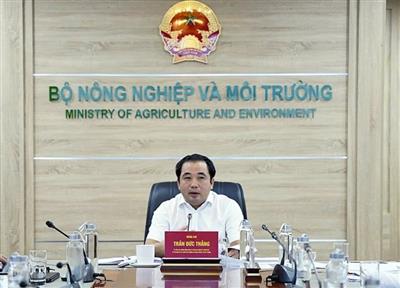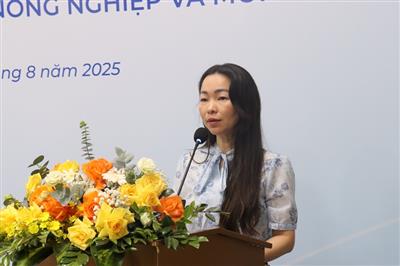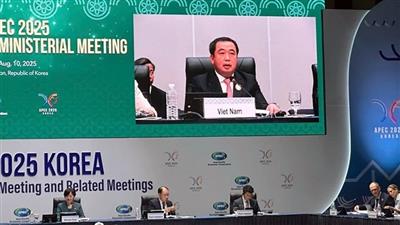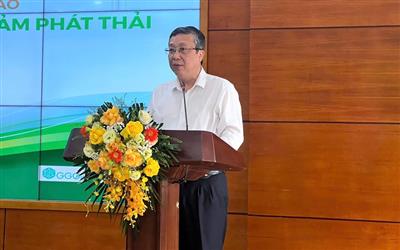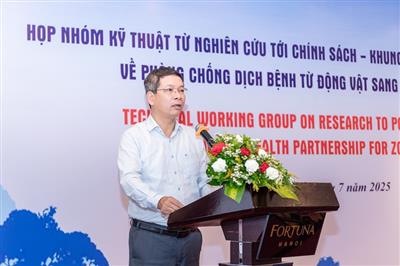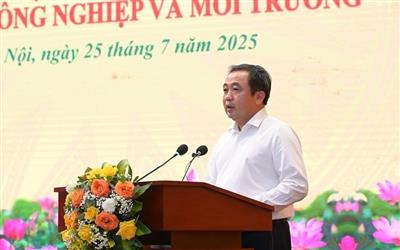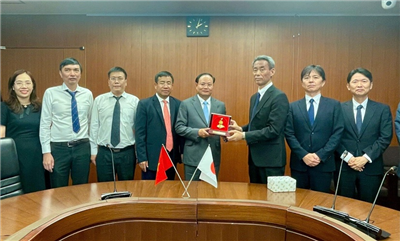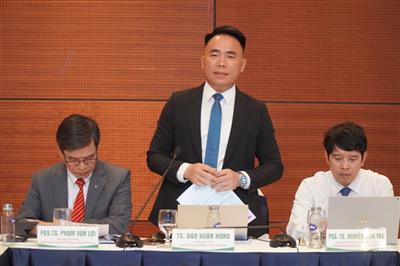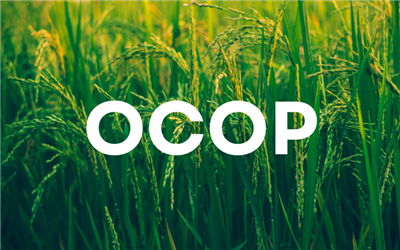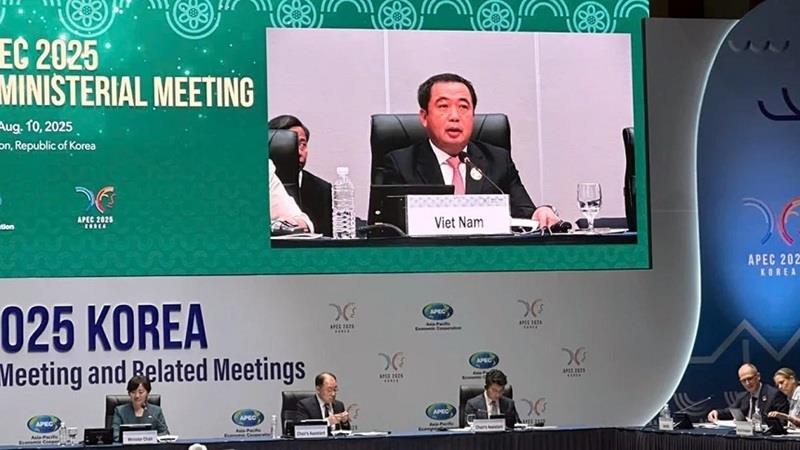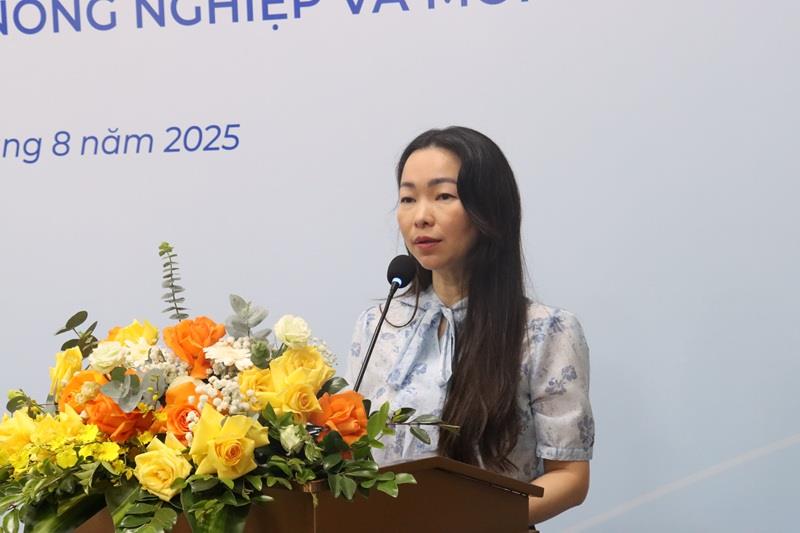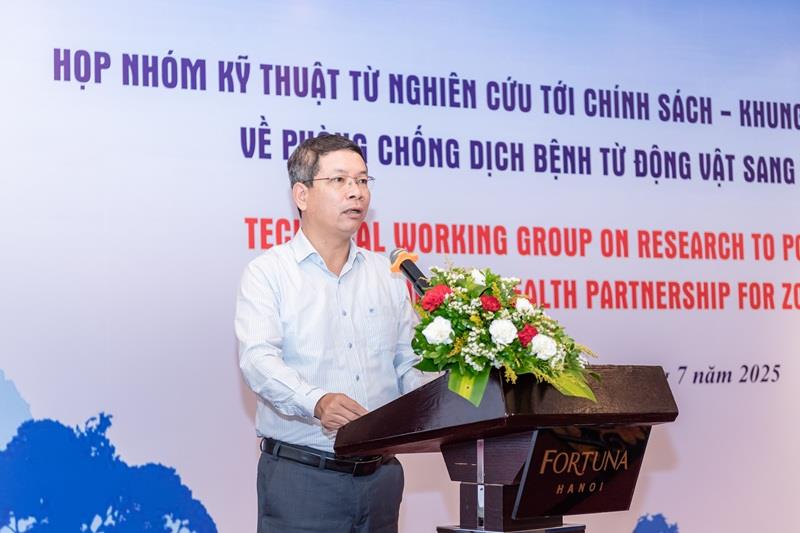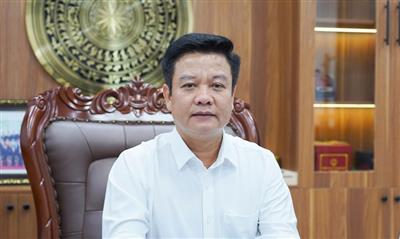
Vietnam-FAO: Toward a pverty-free and sustainable agriculture
10/07/2025TN&MTFrom an aid recipient, Vietnam has transformed into a model of international cooperation, working hand-in-hand with the Food and Agriculture Organization of the United Nations (FAO) to realize a global aspiration: a future where hunger and poverty are no longer part of the agricultural landscape.
In the pursuit of sustainable development, ensuring food security and eradicating hunger and poverty are not only national priorities for Vietnam but also universal objectives. Along this journey, FAO has served as a long-standing strategic partner, particularly through close collaboration with the Ministry of Agriculture and Environment—Vietnam’s lead agency responsible for state management in this critical sector.
From global commitments to national action
In a world increasingly threatened by food insecurity, FAO plays a pivotal role in coordinating and guiding countries to realize major international agendas, including the 2030 Agenda for Sustainable Development, with particular emphasis on Sustainable Development Goal 2 (SDG2): End hunger. As a proactive member of the international community, Vietnam swiftly internalized these commitments and translated them into long-term development strategies.
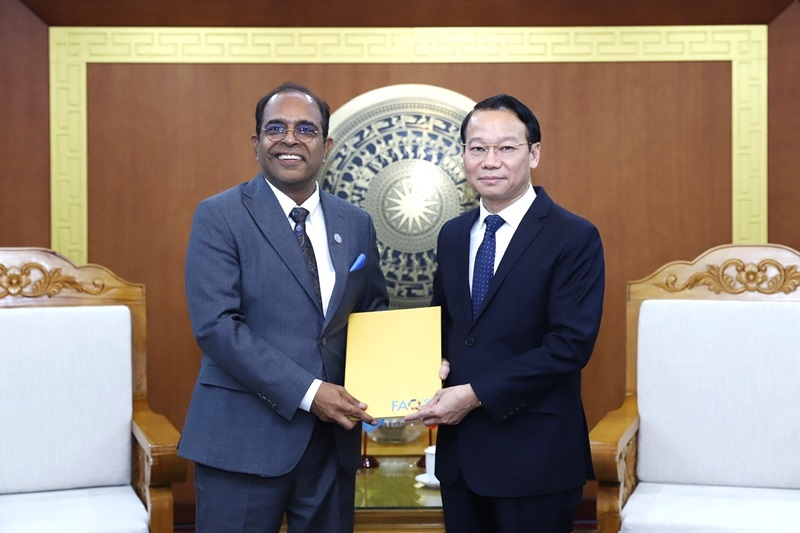
Mr. Vinod Ahuja, newly appointed FAO Representative in Viet Nam, paid a courtesy visit to Minister Do Duc Duy of the Ministry of Agriculture and Environment to reaffirm FAO’s continued commitment to sustainable agricultural development and food security in Viet Nam
As early as 2012, the Vietnamese Government launched National Target Program on New Rural Development and National Targeted Program for Sustainable Poverty Reduction. Both integrate core elements advocated by FAO, such as the promotion of sustainable production, diversification of livelihoods, and assurance of nutritional needs for vulnerable populations. Notably, Vietnam has emerged as one of the pioneering countries in implementing the Zero Hunger Initiative—FAO’s flagship mission to ensure access to sufficient, safe, and nutritious food for all.
In its role as a policy advisory and executive body, the Ministry of Agriculture and Environment has spearheaded the formulation and implementation of several landmark initiatives. These include the Strategy for Sustainable Agricultural Development (2021–2030, with a vision to 2050), the ambitious project to develop one million hectares of high-quality, low-emission rice, and action plans to reduce greenhouse gas emissions across crop production, livestock, and aquaculture sectors. These efforts are all aligned with Vietnam’s commitment to achieve net-zero emissions by 2050, as declared at COP26.
Importantly, these commitments have not remained confined to policy papers. Through close cooperation between FAO and the Ministry, they have been translated into practical outcomes: from piloting smart farming techniques and establishing demonstration models, to scaling up sustainable agricultural value chains and training thousands of local officials and farmers. Projects such as climate-smart rice cultivation, biosafety livestock farming, and responsible aquaculture development provide tangible evidence of Vietnam’s ability to turn global goals into real impacts at the grassroots level.
Flagship projects in practice
In recent years, a number of projects jointly implemented by FAO and the Ministry of Agriculture and Environment have emerged as exemplary models of effective international cooperation, earning praise from local communities, provinces, and international partners alike.
A standout example is the project “Supporting sustainable rice production and reducing greenhouse gas emissions,” which has been deployed in key rice-producing provinces across the Mekong and Red River Deltas. Through the System of Rice Intensification (SRI), thousands of farmers have been trained in efficient sowing methods, smart fertilizer use, and water-saving irrigation practices. The results are significant: lower production costs, higher yields, and a 20–30% reduction in greenhouse gas emissions—directly contributing to Vietnam’s climate goals. This project also serves as a critical foundation for scaling up the Ministry’s broader initiative to develop one million hectares of high-quality, low-emission rice, which is attracting strong interest from international partners.
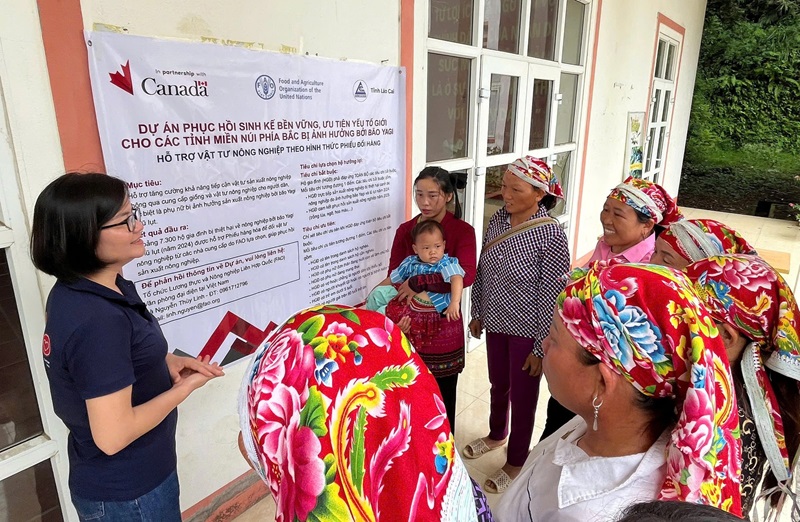
From 7–10 July, FAO and Lao Cai authorities assessed agricultural support needs of over 3,000 households under a Canada-funded project to help typhoon-affected farmers recover sustainably through a flexible voucher-based aid scheme
Another exemplary initiative is the program “Strengthening animal disease surveillance and response systems.” With technical assistance from FAO, many provincial laboratories and veterinary facilities have been upgraded to rapidly detect and control outbreaks of avian influenza, African swine fever, and foot-and-mouth disease. Beyond crisis response, the Ministry and FAO have also developed an early warning system and trained thousands of local veterinary officers—forming a “green shield” to safeguard animal biosecurity at the grassroots level.
In the domain of food safety, the project “Promoting safe food production and consumption” has been rolled out in multiple provinces. It supports farmers and cooperatives in adopting good agricultural practices such as GAP, VietGAP, organic standards, and digital traceability systems. These initiatives not only build domestic consumer trust but also help Vietnamese products meet the stringent requirements of high-end export markets. In the face of growing international pressure to combat illegal, unreported, and unregulated (IUU) fishing—which threatens Vietnam’s seafood exports—FAO has assisted the Ministry in developing community-based fisheries management models. These include the deployment of responsible fishing fleets, journey monitoring systems, and seafood traceability mechanisms. Coastal provinces such as Quang Nam, Binh Dinh, and Kien Giang have already begun to improve their fisheries governance, taking concrete steps toward the removal of the EU’s IUU “yellow card.”
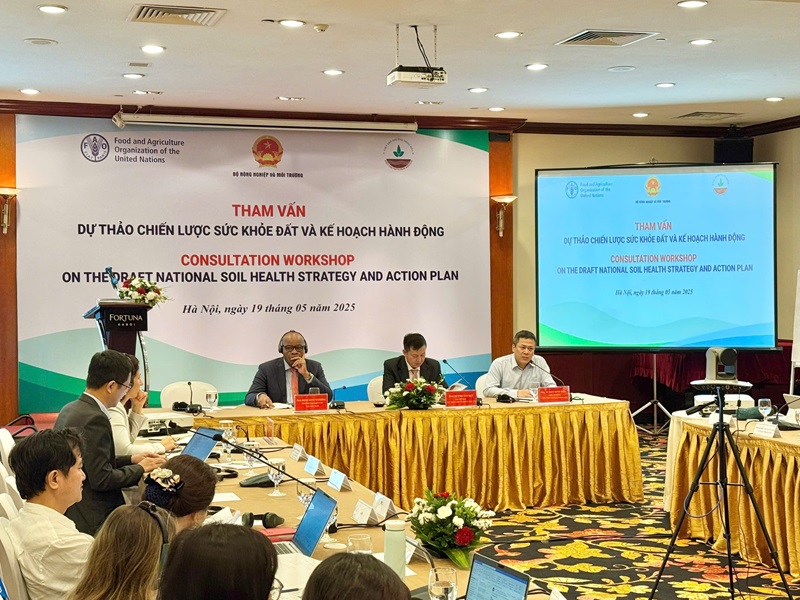
Leaders and experts convene in Ha Noi for the National Consultation Workshop on Soil Health Strategy (19/5), aiming to promote sustainable soil management as a foundation for food, ecosystems, and Viet Nam’s future
FAO’s support also extends beyond production to bolster food system resilience against climate change. In provinces like those in the North Central and Central Highlands regions, FAO has assisted in crafting plans for crop transition to salt- and drought-tolerant species, developing new heat-resistant varieties, and introducing climate-smart agriculture practices—safeguarding the livelihoods of millions of smallholder farmers in vulnerable areas.
More importantly, the Ministry and FAO have worked together to scale up successful pilot models by organizing technical workshops, formulating standardized criteria, and guiding local authorities to adopt these practices independently. This localized approach ensures that international initiatives are adapted to national contexts and become long-term, sustainable solutions.
Shared responsibility for a shared future
In today’s volatile global economy—marked by supply chain disruptions and the intensifying impacts of climate change—food security is facing unprecedented challenges. This reality reinforces a critical lesson: no country can achieve the goal of Zero Hunger on its own. In this context, Vietnam–FAO cooperation stands out as a powerful example of shared responsibility and collective problem-solving.
Vietnam is not merely a recipient of international assistance; it is also a proactive contributor to global development. Under the leadership of the Ministry of Agriculture and Environment, Vietnam has shared its successful experiences in sustainable rice intensification, responsible fisheries development, and climate-resilient crop restructuring with countries across ASEAN, Africa, and South Asia—in alignment with FAO’s vision for strengthening South–South and triangular cooperation.
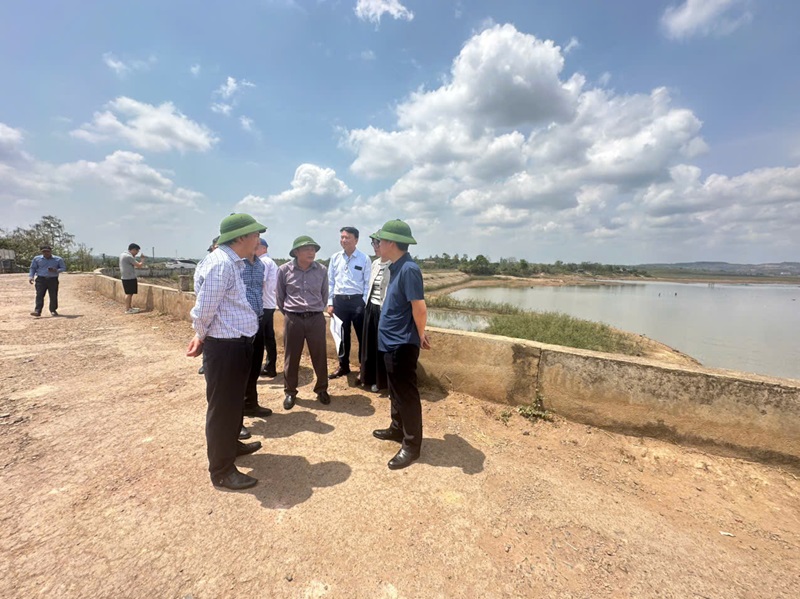
From 16–18 April, FAO and the Department of Water Works Management inspected drought prevention efforts in Dak Nong and Dak Lak as part of the Central Highlands drought impact assessment project
Beyond sharing technical know-how, Vietnam has also been actively involved in developing policy frameworks and governance tools with FAO, spanning sustainable forest management, methane emission reduction in livestock, biodiversity protection, and the promotion of circular agriculture. Each of these initiatives contributes to a growing knowledge ecosystem and community of practice—where farmers, cooperatives, businesses, and local governments can learn from one another and elevate their production standards.
Vietnam–FAO cooperation is further strengthened by close collaboration with other development partners, international financial institutions, and the private sector. As a key facilitator, the Ministry plays an essential role in mobilizing resources, advocating for green technology transfer, and fostering innovation—laying the groundwork for Vietnam’s transition to a low-carbon, climate-smart agricultural economy.
A future without poverty—where no farmer is left behind—is not just a slogan. It is a concrete, measurable objective that requires coordinated action: the Government must create an enabling environment; the Ministry must lead and implement; FAO and the global community must accompany; and farmers and enterprises must actively participate. Only through this collective effort can international commitments be truly embedded in fields, ponds, and farms—generating sustainable and inclusive livelihoods for millions of Vietnamese rural households.
Vietnam, under the leadership of the Ministry of Agriculture and Environment, continues to expand its contributions to the international community by sharing policy experience in sustainable forest management, rice production, and land and water resource governance. These contributions reflect the spirit of South–South cooperation that FAO actively promotes, particularly among African nations.
Looking ahead, the Ministry will continue working with FAO to implement a new generation of initiatives—such as reducing post-harvest losses, improving school nutrition programs, advancing circular agriculture, and promoting low-carbon production systems. These efforts are directly aligned with Vietnam’s commitment to achieve net-zero emissions by 2050, as declared at COP26.
Turning vision into action
The Vietnam–FAO partnership offers a compelling example of how a vision for sustainable agriculture can be realized through action. Beyond high-level political pledges, the cooperation has been translated into tangible programs and projects that extend from national institutions to rural communities. From pilot demonstrations and smart farming initiatives to farmer training schemes, every effort reflects the determination to transform the aspiration of “zero poverty” into real improvements in livelihoods, prosperity, and environmental sustainability.
Throughout this journey, the Ministry of Agriculture and Environment continues to serve as the central orchestrator—coordinating resources, designing practical and inclusive policies, and scaling up proven models. Guided by a multi-value approach, the Ministry is gradually shifting the nation’s production paradigm from traditional to ecological, low-carbon, and circular agriculture, in alignment with Vietnam’s international climate commitments.
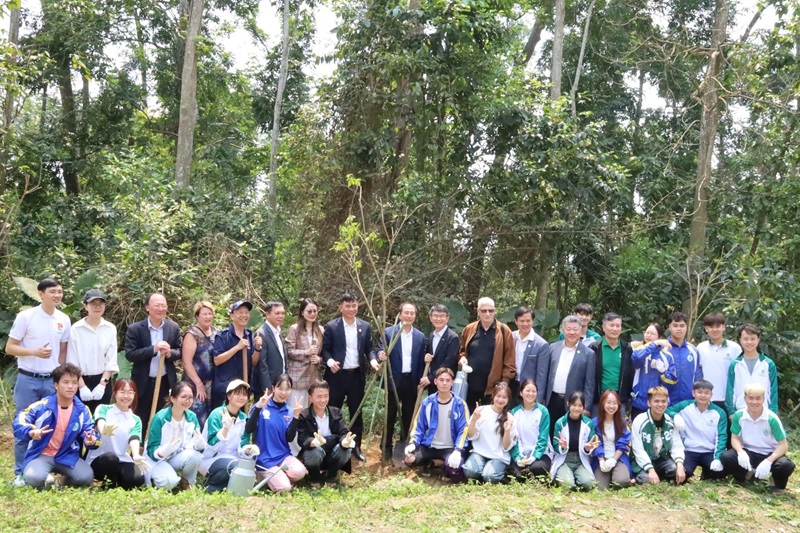
On the International Day of Forests, FAO Viet Nam, VNFOREST, and VNUF reaffirm their commitment to sustainable forest management—safeguarding livelihoods, ecosystems, and food security for future generations
FAO’s support goes far beyond technical and financial assistance. It serves as a vital bridge that connects Vietnam with the global knowledge network, enabling access to cutting-edge technologies and broadening South–South and South–North cooperation. In turn, Vietnam’s best practices are shared with other developing countries—demonstrating not only its national leadership but also its international responsibility.
Yet, vision alone is not enough. The real measure of any commitment lies in its execution—its effectiveness, transparency, and measurable results. In that spirit, the Ministry of Agriculture and Environment will continue to collaborate with FAO and other international partners to enhance data systems, improve monitoring indicators, and ensure that every “green” initiative delivers concrete, lasting benefits for farmers, communities, and businesses.
Creating a poverty-free agricultural future is an ambitious and complex endeavor. But with the resolve of the Government, the leadership of the Ministry, the steadfast support of FAO and development partners, and the resilience and aspirations of millions of Vietnamese farmers, we have every reason to believe that the seeds of hope planted today will yield a future of green, modern, and prosperous agriculture—where no one is left behind.
The Vietnam–FAO partnership is a living testament to the Government’s and the Ministry’s enduring commitment to building a modern, green, integrated, and responsible agricultural sector. Together, we are not merely addressing today’s challenges—we are shaping a future without hunger or exclusion.
Sowing seeds of hope today is an investment in sustainable outcomes for generations to come. This enduring bond—nurtured over nearly half a century of collaboration between Vietnam and FAO—is also the driving force behind our collective resolve to act decisively and meaningfully for agriculture that serves people, protects the planet, and advances shared prosperity.
Viet Anh


